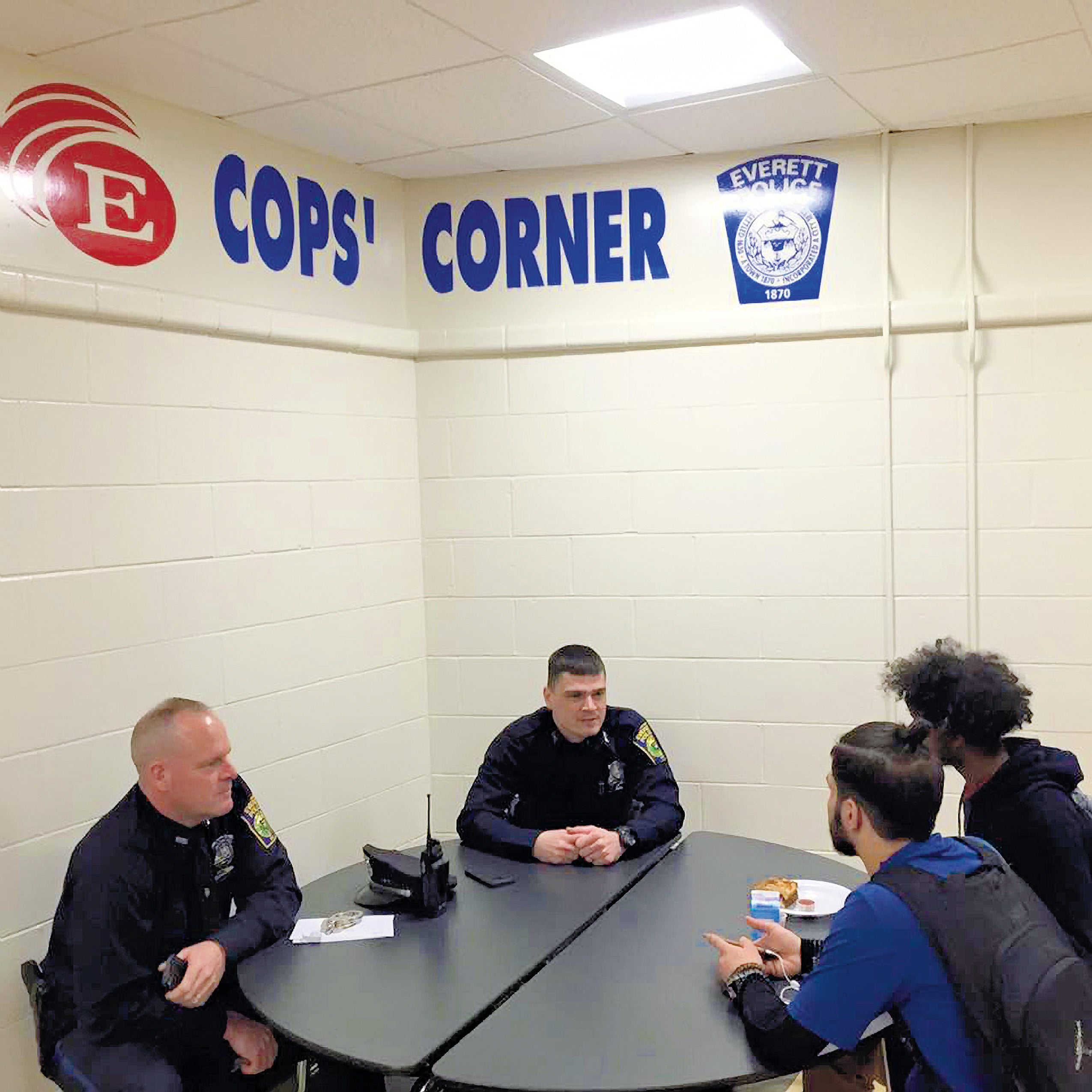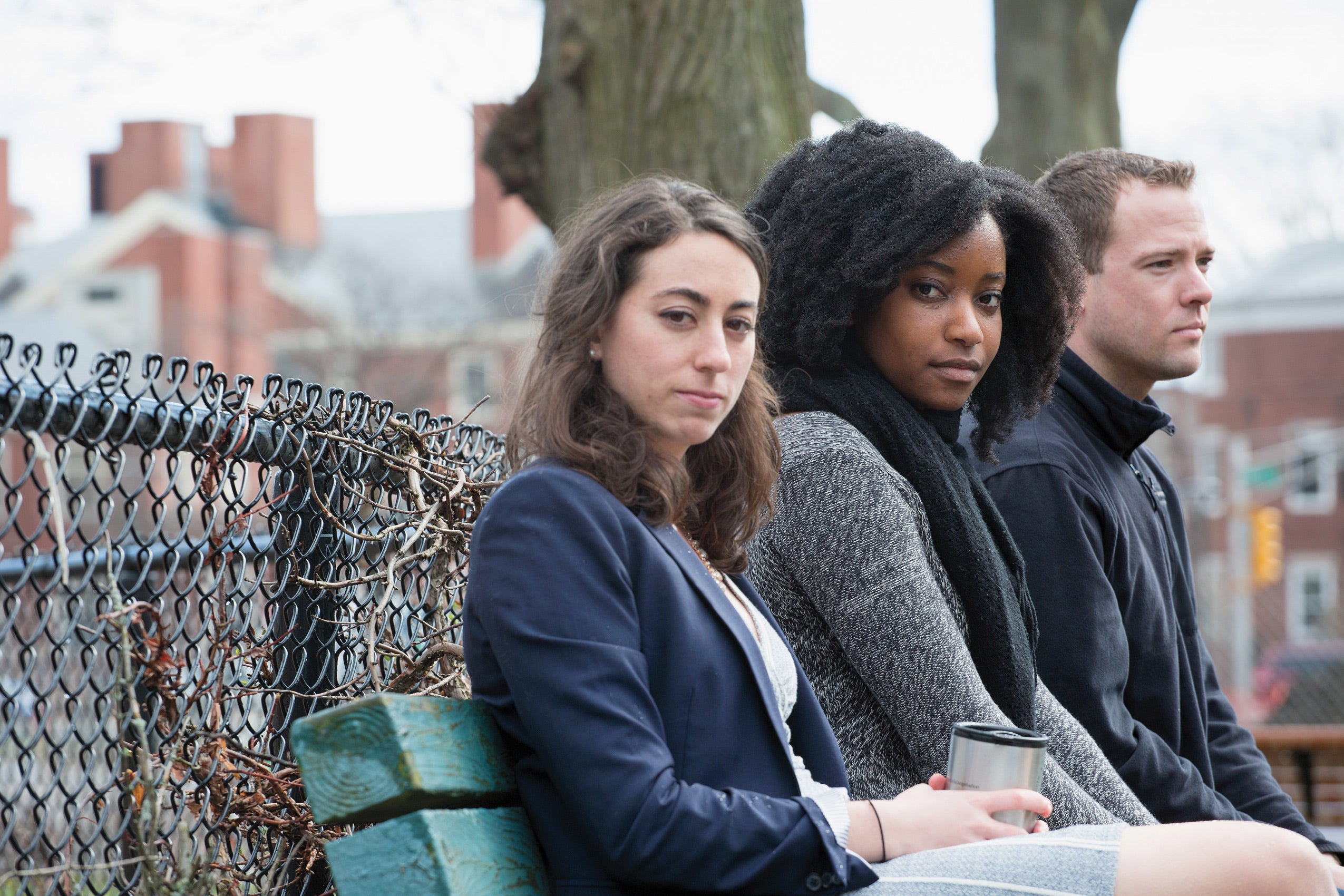In just one decade, Everett, Massachusetts, once a predominantly white city, has become the most racially and ethnically diverse in the commonwealth. Building communication between police officers and local youth is a priority for Chief of the Everett Police Department Steven A. Mazzie, who is white, as are 86 percent of his officers. Last fall he invited a team of HLS students from the Harvard Negotiation & Mediation Clinical Program to Everett for an impartial assessment.
“Our clinic trains students to think about how systems issues contribute to conflict situations,” said Clinical Professor Robert Bordone ’97, director of HNMCP. “By taking a systems approach, we ask: What’s working and what isn’t? What can we do to improve day-to-day interactions, to build trust and connections, to help people gain perspective, and to create systems that promote both peace and justice?”
For six weeks, starting last October, HLS students Sara Bellin ’17, Jenae Moxie ’16, and Carson Wheet ’16 led focus groups and one-on-one interviews with youth and police to assess how well police officers and Everett teens relate to each other and to recommend improvements. They also interviewed community group leaders.

“We entrenched ourselves in Everett. We met with people at the playground, at the school, at the YMCA, at the police station, at City Hall,” said Moxie, who handled much of the community outreach.
“Trying to lead a focus group of 10 high school students was pretty challenging,” said Wheet, who was lead facilitator, but many students opened up and shared their experiences. One minority student talked about being detained for shoplifting and how much he appreciated the officer’s kind manner and willingness to give him a break. In contrast, another student said an officer racially profiled her, and she asserted, “All these cops are so racist.” Students talked about being fearful of police, given their power, and one youth said he feels like a statistic, not a person, in the way police approach him.
“I specifically wanted to do this project because I’ve always had a background interest in race relations in America, as well as police activities and reform,” said Bellin. She oversaw the research for and writing of the final report, which the team presented to the EPD last December and to a meeting of major city police chiefs in the Boston area in April.
The report emphasizes that “every interaction matters,” because Everett youth tend to generalize one bad interaction into a negative view of the whole EPD, while the police in turn too often apply broad generational and cultural preconceptions.
Recent national events, from Ferguson to Baltimore, involving police use of force and fatal shootings involving minority youths have deeply affected Everett youth, the team concluded. They reported that youth and community members feel police officers don’t allow room for young people to make mistakes. At the same time, police officers believe Everett youth generally don’t appreciate the job they do. And both Everett High School students and EPD officers expressed the perception that they are not treated with respect.
Mazzie underscored the HLS team’s findings: “We may have good intentions, and the kids have good intentions, but they don’t always turn out that way and can have a negative impact.”
The HLS team found that both police and young people in Everett wanted more opportunities for positive interaction.
In their report, Bellin, Moxie, and Wheet credited the EPD with “doing a lot of things very well” and concluded that Everett youth want three things above all: transparency, to be heard, and to interact more with officers in social settings.
The report’s top recommendation: “Implement programs that increase continuous, positive, voluntary interactions between police and youth.” Other recommendations included increasing diversity on the force, emphasizing communication skills in hiring, and implementing simple policy changes to EPD practices in approaching Everett youth.
Said Mazzie: “Our school resource officers do a good job and have a positive impact,” and the report noted that Everett High School students agree. “But the problem is, they’re a small sampling of the department. They [the HNMCP team] said opportunities to get more police officers interacting with young people would be beneficial. They found the police officers want those positive interactions and young people do as well.”
To that end, Mazzie has launched the new Cops’ Corner initiative. Once a week, a pair of EPD officers head to the high school cafeteria and meet with students over lunch, at the Cops’ Corner table, to discuss whatever is on their minds, from movies to sports to criminal justice careers. Mazzie and Officer Jeff Gilmore, who completed a tour as a youth services officer, signed up to be the first pair.
Moxie praised the EPD leadership’s openness: “Their willingness to hear the truth and the whole truth was incredible and refreshing after a year of negative narrative about police receptiveness to change.”
“Putting negotiation theory and tools into practice, to help with what is obviously a prevalent problem in our society, was incredibly rewarding,” said Wheet.
HNMCP was “thrilled to have the Everett project and would love to do more,” said Bordone, and in fact another team is already partnering with the Boston Police Department to create a pilot mediation program.
